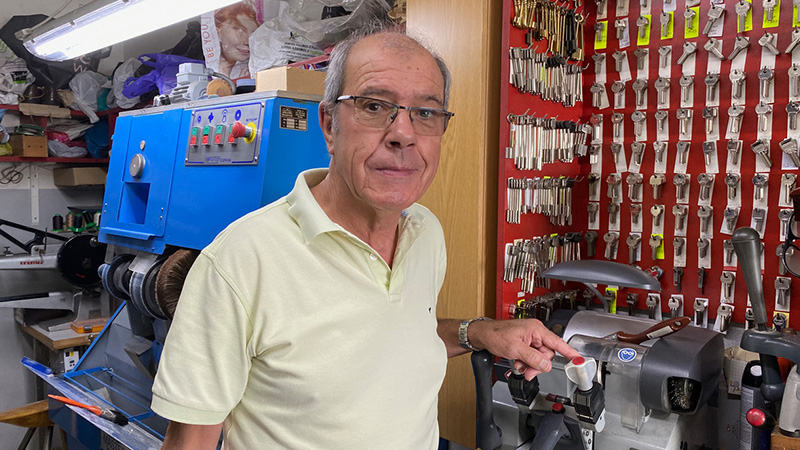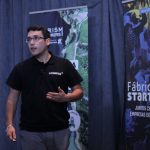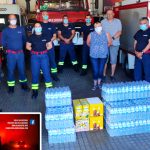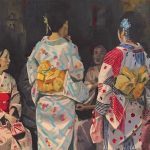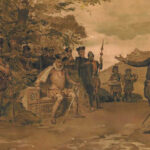Reluctant politician, engineer, taxi driver, celebrated marathon runner, and latterly shoe repairer, 76-year-old Manuel Guerreiro has many tales to tell. I was told that in an unassuming shoe repair and key cutting shop on the main street in Odiáxere, near Lagos, I would find a man that was a tad out of the ordinary. And so, it proved to be.
We agreed to meet later for a chat in the café opposite his shop, Casa das Chaves. Brimming with youthful energy and enthusiasm, he tells me his intriguing life history in minute detail.
Manuel was born in Lisbon but when his parents separated, his mother brought him to Odiáxere when he was 14 months old. “We lived with my maternal grandparents. The family was humble, but always supportive,” he tells me. Like many of his contemporaries, he only completed four years of schooling. At eleven, he had his first job as an aguadeiro (water carrier), probably the first one ever in this region, he tells me. “I still remember holding tight onto my grandfather’s hand, making the six km walk to the Barragem da Bravura every day. My job was to hand water to the workers digging the first irrigation channel, Canal Central. The thirsty work was all done by hand, using pickaxes and shovels.”
Three years later, on 15 May 1959, he witnessed the official inauguration of the dam itself. A delegation from Lisbon arrived, headed by President Américo Tomás (1958–1974) who ceremoniously declared the dam open.
What was Odiáxere like at this time? It was a small, closed village where everyone knew everyone else’s business. There were many smallholdings where people eked out a living. As there was little work available, Manuel later delivered packages on his bike. “Some who earned a wage, mainly in the fish canning factories, paid outright, others by instalments but they were honest, and all paid what was due,” he says.
Lisbon promised more employment and he worked in a tap-making factory. At twenty he was called up for military service. “However, I broke my leg,” and with wry humour adds, “Luckily, not both … and I was not sent to fight in the colonial wars.”
After his 34-month military service spent in Lisbon, he secured work as a supervisor on the magazine Jornal de Século. My head is already spinning trying to take in his ever-changing career path, but there is more …
His life changed when he met his future wife who had already spent some years working as a seamstress in France. They married in 1969 “and still happily together,” he smiles.
They moved to Paris where they lived for the next fifteen years and where their two sons were born. With his usual iron-hard determination, Manuel was intent on learning French and soon mastered it like a native. True to form, he quickly acquired new skills and expanded his CV. There were ups and downs, but his indomitable spirit saw him through. Nine years were spent working as a mechanic in an electronics components factory, followed by two years as a taxi driver with some hairy experiences he’d rather forget. With pressure from his wife, he changed his profession, securing a job as an aeronautics mechanic. “It was very rigorous as we worked both on the Airbus and Concorde,” he says.
In 1984, it was time to return to their home country. Odiáxere was still inward-looking, and many were resistant to change. I suspect what happened next was because Manuel, with his experiences abroad and positive outlook, was regarded as a person who could bring something fresh to the village. He’d already collared Ramalho Eanes, the President of the Republic (1976–86) visiting Lagos to open an art exhibition.
He outlined the problems with the water supply in the town. “There was running water, but the pipes often burst. The bombeiros distributed water in tanks but it wasn’t enough,” he tells me. “Ramalho Eanes listened to my concerns and later we became friends.”
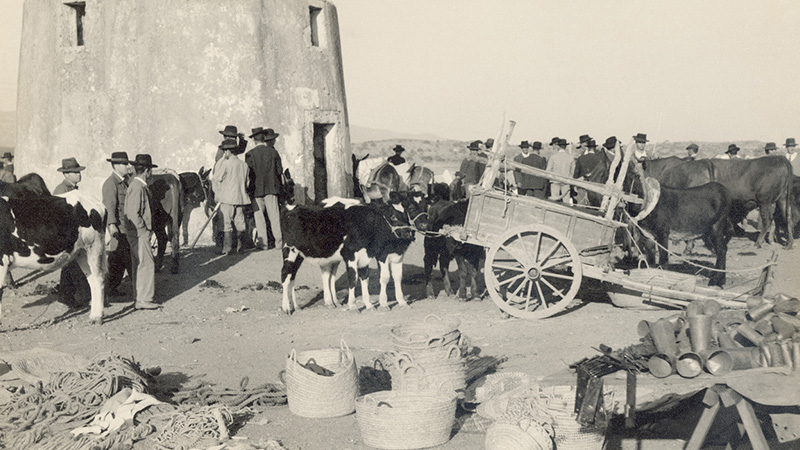
Cattle fair at Odiáxere in the 1960s (Courtesy of Fototeca de Lagos)
Manuel had no intention whatsoever of pursuing a political career but on 10 January 1986, he became the President of the Parish Council in Odiáxere! How on earth did it happen? He explains that just before the elections, while doing some work in his house there was a knock at the door. “I was asked to give my name to be added onto a political list for a new party, the Democratic Renewal Party that Ramalho Eanes had founded the year before. I thought, why not?” Taken to the hall where political material was displayed, he realised to his amazement that his name was on top of the candidates’ list. He won the election by nine votes and found himself with a mandate for the next four years.
What does a person like Manuel Guerreiro now do? Roll up his sleeves and get on with the job, of course. There was plenty to do. Some things achieved during his mandate included improving pavements, tarmacking roads, installing paper recycling bins in all parts of the parish and building a new cemetery.
He’s keen to tell the story of how he changed the spelling of the name of the town. Consulting archives and historians, he realised that Odeáxere with an ‘e’ was incorrect. Throughout history, it had been spelt with an ‘i’ but in 1905 an overzealous priest in charge of archives in Lisbon, changed it to an ‘e’. The name derives from the Arab uad or wadi denoting ‘river’ as in Odemira (the river of Mira) and Odeceixe (the river of Ceixe). The origin of -áxere remains unknown, however. The Etymological Dictionary of Portuguese confirms that before a vowel it’s odi- and before a consonant it’s ode-. In 1987, Manuel restored the correct spelling. There was an initial uproar as many locals were against the change. Next time you drive through the town, check the spelling for yourself!
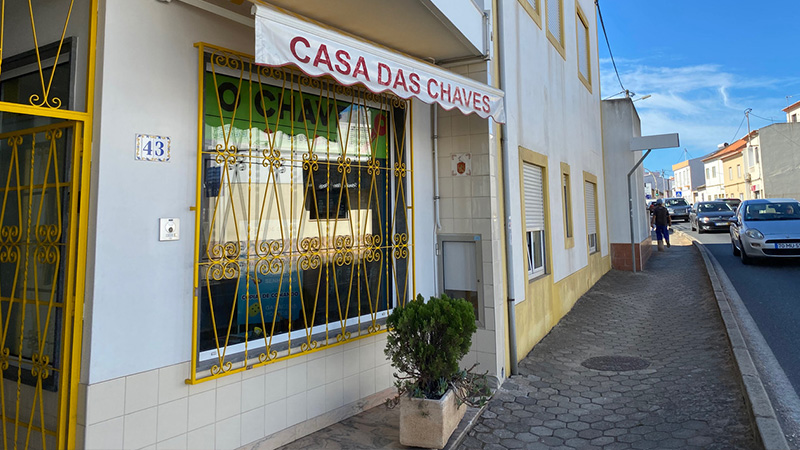
Casa das Chaves
Following advice from a friend in Paris, he decided to open a shoe repair and key-making business. During his mandate as President, he sold his car to afford the renovation of his premises. No other transport was available, so he found a solution: “Whenever I needed to visit places, I ran. I enjoyed it so much that I started exploring the area on foot and got to know Odiáxere in minute detail.” He was invited to take part in a half marathon in Lagos and then there was no stopping him. The Lisbon marathon followed, which he won in record time (3hrs 8 mins), then marathons in New York, Barcelona, Paris and Madrid. “However, I had my priorities. Work always came first, then my running,” he assures me.
He has run Casa das Chaves for over 30 years. Having no experience in the business was no obstacle. He taught himself the necessary skills, always determined to do work of the highest standard. His sons, whom he supported through higher education, have in the end opted for the same profession. His oldest son runs a successful business making car keys in Faro while his younger son is planning to take over the key cutting part of his own shop. Is retirement on the horizon? A hearty laugh is the response. I take it as a “no”.
I have one final question for Manuel. What is it that he values most in life? His simple answer is: “Honesty, loyalty and sincerity.”
My meeting with Manuel made an impression on me. Poverty and little formal schooling never fazed him. Instead, he overcame all hurdles with sheer determination and remarkable resourcefulness. He became a skilled professional in whatever he did. Well-regarded and respected, he built lifelong friendships. The three qualities he emphasised encapsulate him perfectly.
Marathons




